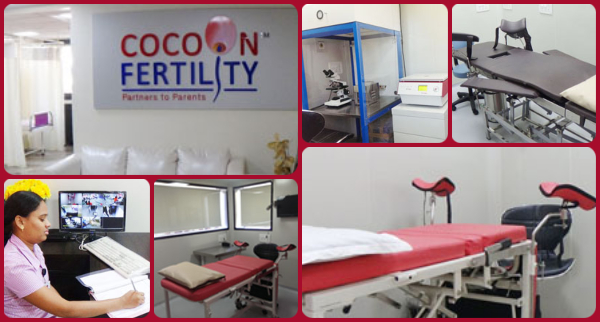More than one in five pregnancies end in a miscarriage. A miscarriage of pregnancy can be deeply distressing. It is natural that every couple wants an explanation of what has gone wrong. The investigation and diagnosis for miscarriage however is not always straightforward and this can add to the parents’ anxiety. The lack of explanation further adds to their suffering.
When a baby is conceived, it takes half its genes from the sperm and half from the egg. At the exact time of conception, a mixing and cross-over of these genes takes place. But for many different reasons this complex process can randomly go wrong and sadly the pregnancy miscarries.

‘Recurrent miscarriage’ is diagnosed when a woman miscarries consecutively 3 times. The incidence of miscarrying 3 times is about 1 in 100.
However the good news is that in our clinic, we have taken long awaited steps forward in the diagnosis and treatment of women who suffer recurrent miscarriage.
At Cocoon, we run a special Recurrent Miscarriage Clinic where we do a whole range of investigations working through your physiology, hormones and finally your immune system. The tests enable us to establish exactly what is causing you to miscarry and what treatment we can best provide you with.
Here are some causes of recurrent miscarriage with their investigations and management:
Immune Mechanisms – 50%
Implantation of embryos into the mother’s womb is a complex process involving several factors including the local systemic immune responses. Sometimes a mother’s immune system can actually turn on itself and affect her own pregnancies. Using recent advances in reproductive immunology alongside other established therapies we are now able to diagnose and treat a much greater proportion of women who have previously been offered little hope. Some immunological cause of recurrent miscarriage are –
Hormonal – 20%
Thrombophilias (blood disorders) – 10-13%
The thrombophilias are a group of disorders that promote blood clotting. Individuals with a thrombophilia tend to form blood clots too easily. The major gene mutations that lead to Inherited Thrombophilias are:
- Factor V Leiden
- Protein C deficiency
- Protein S deficiency
- Antithrombin III deficiency
- Activated Prothrombin C Resistance (APCR)
- Methylene-tetrahydrofolate reductase MTHFR C677T, leading to hyperhomocytseinemia
- G20210A prothrombin gene mutation
- Lupus Anticoagulant
- Anti-cardiolipin Antibodies
Most people with a thrombophilia do not know they have it because they have no symptoms.
A combination of low-dose aspirin plus low molecular weight heparin injections is used to reduce the risk of miscarriage and gives you an excellent chance of a successful outcome.
If your results reveal that you are a carrier of MTHFR gene mutation, you will be advised higher intake of Folic acid supplementation.
Anatomy – 5-10%
Chromosome Abnormality -3-5%
Chromosomes carry the genetic information for each individual. A baby inherits half of its chromosomes from its mother and half from its father.
Chromosomal analysis or karyotyping can be done to look for chromosomal abnormalities in a couple.
If there is an abnormality, then you will be offered specialist genetic counseling to give you more information and help you decide about future pregnancies.
Infection – 1%
Infections of the genital tract rarely cause a miscarriage, however, there is no clear evidence that they may lead to recurrent pregnancy loss.
Bacterial vaginosis (BV) is one such condition. It is not considered an infection, but a change of the bacterial habitat that normally exists inside the vagina.. BV is associated with increased risks of late miscarriage.
BV can be treated with antibiotic to reduce the incidence of late miscarriages.
Unknown Causes- 15%
Some women despite thorough investigations, no known cause of their miscarriage is found. However, treatment is still available to these women and is usually tailored to each individual.


